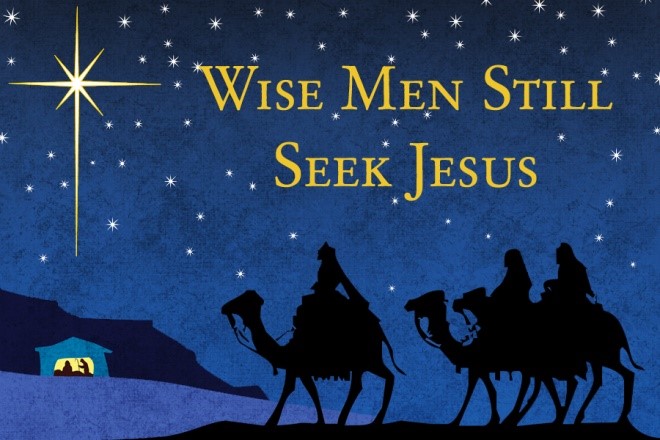Happy New Year! I hope you have enjoyed this marvelous festive season as we celebrated once again the birth of our Savior at Christmas as well as the Feast of the Holy Family of Jesus, Mary and Joseph last Sunday. Gathering together with family and friends is certainly a wonderful way to commemorate our Lord joining our human family so that we could become once again worthy to be part of God’s family! The Christmas season ends with the Feast of the Baptism of the Lord next Sunday.
As we begin another year in God’s grace, I want to thank you – in the name of the thousands of people throughout the Archdiocese who will benefit – for your tremendous generosity to the 2018 Catholic Charities Appeal; (we reached a new milestone this year)! As you may recall from my report on the Catholic Charities Appeal early this year – it was in my 18 February 2018 Parish Bulletin article – our goal for 2018 was $152,390.00. And, as in past years, we exceeded our goal; the total collected to date is $161,291. As you know from the literature you receive every year, the Catholic Charities Appeal assists men, women and children throughout the Archdiocese through a whole variety of organizations, programs and other initiatives; in their name, I thank you. Your ongoing generous response to this annual appeal is a true testimony to your awareness that, as followers of Christ, we are all called to make his love and care apparent to all the world!
Speaking of making our Lord apparent, today we celebrate the Solemnity of the Epiphany of our Lord. As you surely know, Epiphany means “to appear to” and today, it refers to the manifestation of the infant Jesus to the gentiles, personified in the wise men who came from the East. As we hear in today’s Gospel, “magi from the east arrived in Jerusalem saying, ‘Where is the newborn king of the Jews? We saw his star at its rising and have come to do him homage.’” However, in the writings of early Christians, the term “epiphany” was also used in reference to his birth since it was then that God appeared in human form. In fact, “epiphany” often referred to his baptism and the wedding feast at Cana as well, since these were events where Jesus’ divinity was made manifest. Today’s readings at Mass all focus on the visit by the magi but throughout the Divine Office (the official prayer that clergy are required – and laity are encouraged – to pray throughout the day), there are references to our Lord’s birth, baptism and miracle at Cana – all vestiges of the events that have been indicated by this feast.
Down through the past 2,000 years of Christianity, it has taken on significance in a variety of ways around the world. In the Western Church, Christians began celebrating the Epiphany in 354AD, associating it with the visit of the Wise Men to Jesus. The three kings – tradition has given them the names Melchior, Caspar and Balthazar (representing Europe, Arabia and Africa respectively) – followed the star of Bethlehem to meet the baby Jesus where they offered gifts of gold, frankincense and myrrh. The gifts were symbolic of the importance of Jesus’ birth. The gold represented his royal standing as the new king in the line of David, frankincense symbolized his divinity and myrrh anticipated his death (myrrh is a balm used to prepare a body for burial).
The Solemnity of the Epiphany began to be celebrated in the Eastern Church around 361AD. Even today, many Eastern Churches consider the Epiphany as important as – if not more important than – Christmas. During the medieval period, Christmas was celebrated for the 12 days from Christmas Eve on December 24, until the Epiphany. Even up until the 19th century, January 6 was as big a celebration as Christmas Day in many countries.
We Catholics observe Epiphany on a single day, usually on the Sunday after 6 January or, as it happens this year, on 6 January when it occurs on a Sunday. For many Protestant churches, however, the season of Epiphany extends from 6 January until Ash Wednesday and the start of Lent. The last Sunday of the Epiphany is celebrated as Transfiguration Sunday. And, some Orthodox Christians, who celebrate Christmas on 7 January, observe the Epiphany on 19 January each year. Across the world, the day’s celebration is observed in a variety of ways. In the Spanish speaking world, Epiphany is known as El Dia de los Reyes (Three Kings’ Day). In some Latin American countries, believers gather to taste the Rosca de Reyes – Kings’ bread. A Jesus figurine is often hidden in the bread and whoever finds the small statue of the baby Jesus hidden inside their slice of the Rosca de Reyes throws a party on Candlemas in February.
Yes, we celebrate our God’s becoming apparent to us through his Son, born of Mary, made manifest to the wise men who came from the East, baptized by John in the Jordan when God’s voice from heaven declared “this is my beloved Son on whom my favor rests; listen to him”, and showing his love and concern for everyone he met by his miraculous acts – the first of which was changing water into wine at Cana. In these – and countless other ways – the Sacred Scriptures recall God’s revelation to us in his Son, our Lord, Jesus Christ. As we celebrate the Epiphany today, let us be grateful to our God, who has made his presence known to all who open their eyes of faith to see!


